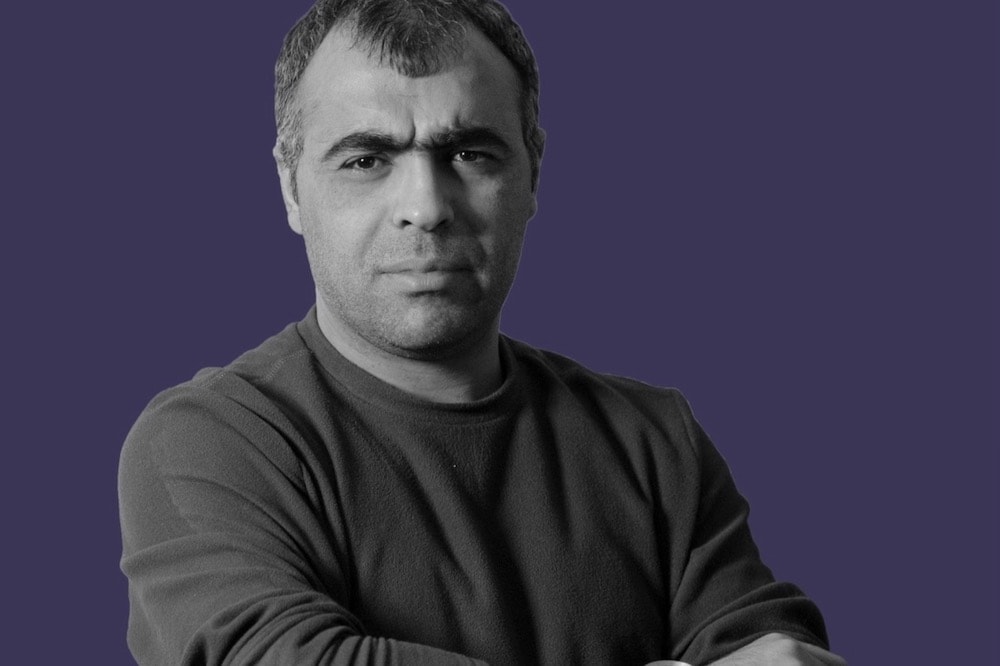The Court of Cassation has overturned a 10-month prison sentence handed down to journalist Sinan Aygül in March 2023 on "spreading disinformation" charges.
This statement was originally published on bianet.org on 13 May 2024.
The decision marks the first time a conviction under the controversial disinformation law has been reversed
The Court of Cassation has overturned a 10-month prison sentence originally handed down to journalist Sinan Aygül on “spreading disinformation” charges.
In March 2023, the Tatvan 1st Penal Court of First Instance sentenced Aygül, a Bitlis-based local journalist who also chairs the Bitlis Journalists Association, for sharing allegations of child abuse against a military officer on social media. He had later corrected his post, admitting that the allegation was false.
This correction was the basis for the top appeals court’s decision to overturn the sentence, marking the first time a conviction under the disinformation law has been reversed. Enacted in 2022, the disinformation law has drawn widespread criticism from journalism groups, who dubbed the law as the “censorship law.”
“Upon evaluation of the specific incident, it was found that the accused shared the misleading information on social media around 10:24 PM, issued corrections after discussions with relevant authorities, completely removed the post, and apologized to the public for sharing without verification,” says the court ruling. “Considering all these actions and his immediate response upon learning the information was incorrect, it is clear he did not act with the sole intention of creating panic or fear among the public. As a journalist, he was exercising his right to report the news without any intention of committing a crime.”
“An aggressive interpretation of the law”
Reacting to the decision, Aygül criticized the law and its implementation from the outset. “We knew this would happen,” he remarked, recalling that the public and journalists had opposed the law even while it was still a draft. Aygül described his personal ordeal as highly unjust: “To activate the judiciary and the police, I reported on an allegation of child abuse. My aim was to inform, to spur the relevant authorities into action and to prevent victimization.
“Due to an aggressive interpretation of this law, I was hastily detained and arrested at midnight, spending ten days in solitary confinement. On the night I was detained, both of my children were sick, and I had just returned from the hospital. I had to leave them with high fevers, and it was ten days before I could see them again. Whether the Supreme Court overturns the decision or not, this is not what justice looks like.”
Diyar Orak, a lawyer from the Bitlis Bar Association and the Media and Law Studies Association (MLSA), described the decision as promising. Orak noted that the initial investigation, arrest, and conviction under Article 217/A were all firsts for his client, Sinan Aygül. “We tried to argue during both the investigation and the trial at the local court that the law was being interpreted too broadly against our client, which was legally incorrect.
“Despite our efforts, the local court issued a conviction, influenced by a prejudiced view against my client. The 8th Penal Chamber of the Court of Cassation, by making this decision, has prevented these violations. It is both gratifying and hopeful that the Court of Cassation issued such a decision regarding a law article that is very prone to be used against journalists and allows them to be easily targeted.”
“Not a precedent”
Erol Önderoğlu, Turkey Representative for Reporters Without Borders (RSF) and bianet Media Monitoring rapporteur, commented that the law was used as a tool of oppression by the government. He expressed doubt that the decision would set a precedent: “The conviction of Aygül under this freshly minted regulation was clearly opportunistic, aimed at silencing dissent. The damage this ‘disinformation’ law would inflict on journalism and freedom of expression was evident to us and journalism organizations.
“We do not see the prosecution or conviction of Aygül or other journalists under this law as an isolated incident but rather as a maneuver by the political authority to sabotage journalism and free thought. Therefore, we do not expect the Supreme Court’s annulment decision to serve as a guide or precedent.”
The Supreme Court will now send the case back to the Van Regional Court of Justice, 2nd Penal Chamber (appellate court), which originally dismissed Aygül’s application. If the appellate court finds no need for further investigation, it will issue its own decision. If not, the case will be sent back to the Tatvan 1st Penal Court of First Instance, which initially sentenced Aygül. If the local court complies with the appellate decision, Aygül will be acquitted; if it resists or if there is an appeal, the case will then go to the General Assembly of the Supreme Court.
The disinformation law
Turkey’s disinformation law, often referred to as the “censorship law” by media rights activists and opposition groups, was enacted in October 2022.
The law criminalizes the “dissemination of false information,” with potential prison sentences ranging from one to three years.
The law also grants extensive powers to the government-controlled Information and Communication Technologies Authority (BTK) to compel social media companies to comply with content takedown requests and hand over user data. Non-compliance by tech companies can lead to the reduction of their bandwidth by up to 90 percent.



